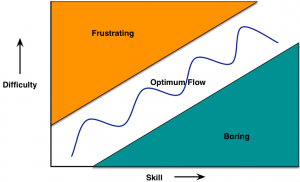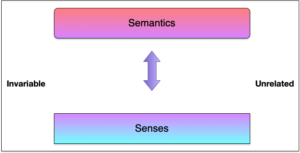If you’re a CEO, COO, CFO, and the like, are you holding L&D to account? Because much of what I see coming out of L&D doesn’t stand up to scrutiny. As I’ve cited in books and presentations, there’s evidence that L&D isn’t up to scratch. And I think you should know a few things that may be of interest to you. So here’re some L&D myths you might want to watch out for.
- If it looks like school, it must be learning. We’ve all been to school, so we know what learning looks like, right? Except, do you remember how effective school actually was? Did it give you many of the skills you apply in your job now? Maybe reading and writing, but beyond that, what did you learn about business, leadership, etc? And how did you learn those things? I’ll bet not by sitting and listening to lectures presented via bulletpoints. If it looks like schooling, it’s probably a waste of time and money. It should look more like lab, or studio.
- If we’re keeping our efficiency in line with others, we’re doing good. This is a common belief amongst L&D: well, our [fill in the blank: employees served per L&D staff member | costs per hour of training | courses run per year | etc.] is the same or better than the industry average, so we’re doing good. No, this is all about efficiency, not effectiveness. If they’re not reporting on measurable changes in the improvement of business metrics, like sales, customer service, operations,e tc, they’re not demonstrating their worth. It’s a waste of money.
- We produce the courses our customers need. Can they justify that? It’s a frequent symptom that the courses that are asked for have little relation to the actual problem. There are many reasons for performance problems, and a reliable solution is to throw a course at it. Without knowing whether it’s truly a function of lack of skill. Courses can’t address problems like the wrong incentives, or a lack of resources. If you’re not ensuring that you’re only using courses when they make sense, you’re throwing away money.
- Job aids aren’t our job. Performance should be the job, not just courses. As Joe Harless famously said: “Inside every fat course there‘s a thin job aid crying to get out.” There are many times when a job aid is a better solution than a course. To believe otherwise is one of the classic L&D myths. If they’re avoiding taking that on, they’re avoiding a cheaper and more effective solution.
- Informal learning isn’t our job. Well, it might not be if L&D truly doesn’t understand learning, but they should. When you’re doing trouble-shooting, research, design, etc., you don’t know the answer when you start. That’s learning too, and there is a role for active facilitation of best principles. Assuming people know how to do it isn’t justifiable. Informal learning is the key to innovation, and innovation is a necessary differentiation.
- Our LMS is all we need. Learning management systems (which is a misnomer, they’re course management systems) manage courses well. However, if they’re trying to also be resource portals, and social media systems, and collaboration tools, they’re unlikely to be good at all that. Yet those are also functions that affect optimal performance and continual innovation (the two things I argue should be the remit of L&D). Further, you want the right tool for the job. One all-singing, all-dancing solution isn’t the way to bet for IT in general, and that holds true for L&D as well.
- Our investment in evaluation instruments is valuable. If you’re using some proprietary tools that purport to help you identify and characterize individuals, you’re probably being had. If you’re using it for hiring and promotion, you’re also probably violating ethical guidelines. Whether personality, or behavior, or any other criteria, most of these are methodologically and psychometrically flawed. You’re throwing away money. We have a natural instinct to categorize, but do it on individual performance, not on some flawed instrument.
- We have to jump on this latest concept. There’re a slew of myths and misconceptions running around that are appealing and yet flawed. Generations, learning styles, attention spans, neuro-<whatever> and more are all appealing, and also misguided. Don’t spend resources on investing in them without knowing the real tradeoffs and outcomes.These are classic L&D myths.
- We have to have this latest technology. Hopefully you’re resistant to new technologies unless you know what they truly will do for your organization. This holds true for L&D as well. They’re as prone to lust after VR and AR and AI as the rest of the organization. They’re also as likely to spend the money without knowing the real costs and consequences. Make sure they’re coming from a place where they know the unique value the technology brings!
There’s more, but that’s enough for now. Please, dig in. Ask the hard questions. Get L&D to be scrutable for real results, not platitudes. Ensure that you’re not succumbing to L&D myths. Your organization needs it, and it’s time to hold them to account as you do the rest of your organization. Thanks, and wishing you all the best.
Something that emerged from a walk, and, well, I had to get it off my chest. I welcome your thoughts.



